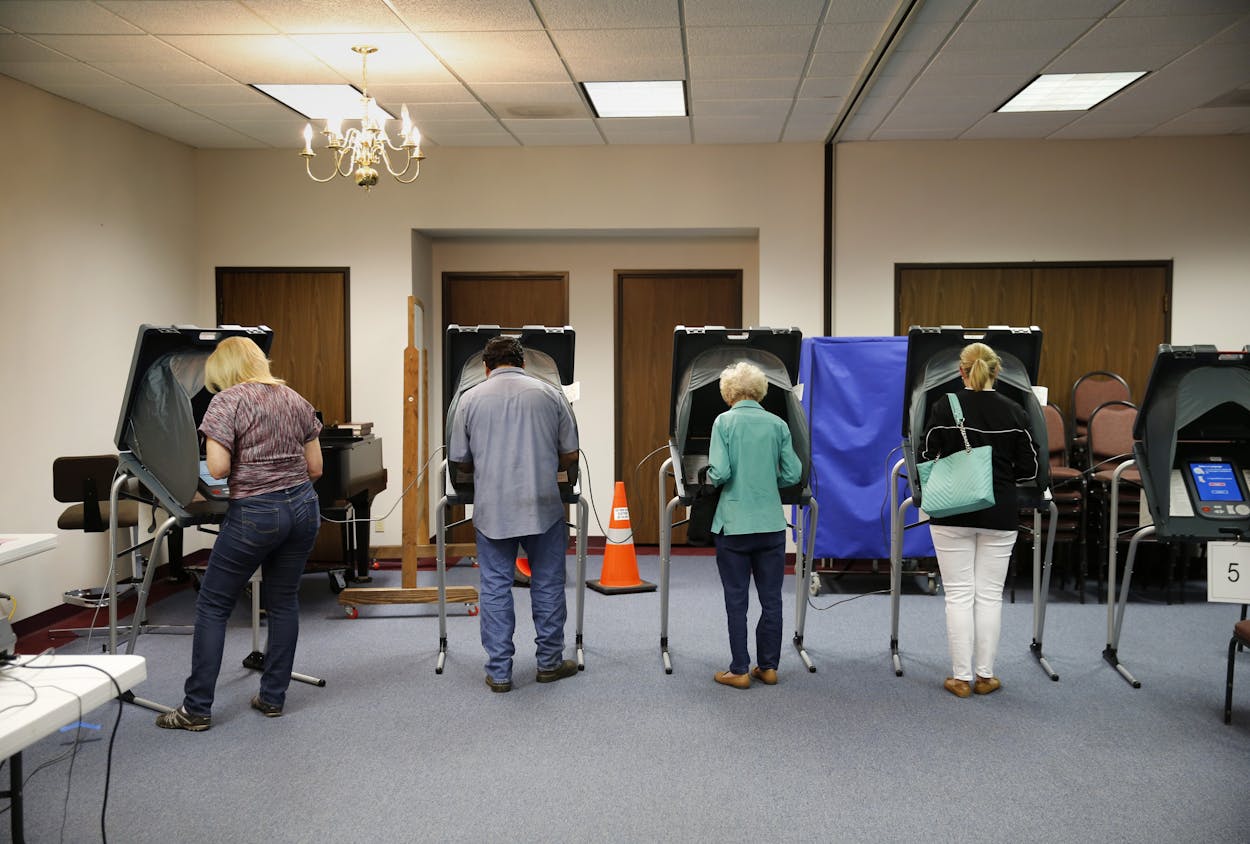Yesterday, Texas and the Justice Department announced an agreement concerning the 2011 voter ID law that requires anyone voting in person to show one of seven forms of government-issued photo identification. The measure has been fiercely contested since its passage on the basis that it has a discriminatory impact on black and Hispanic Texans, who are disproportionately likely to lack any of the identification in question. In July, after several years of appellate-court wrangling, the Fifth Circuit ordered the state to fix it, yielding the proposal announced yesterday. Assuming the agreement is approved by a district court judge, Texas voters will have to show photo ID at the polls in November, unless they don’t actually have a driver’s license, passport, concealed handgun license or so on. In that case, voters may establish their identity by showing any other government-issued document, like a utility bill or voter registration certificate, and signing an affidavit that they are who they say they are.
This seems sensible to me, almost suspiciously so. I’m opposed to voter ID laws on the basis that they’re prima facie unconstitutional; the documentation of my right to vote is—well, in my case, it’s the Nineteenth Amendment. But reasonable people can disagree; the Supreme Court has upheld the constitutionality of various forms of state-level red tape, including photo ID requirements. The agreement, in this case, seems like a reasonable compromise; it will allow Texans to vote without showing a photo that corroborates their identity, but that was already the case, given that many Texas voters are eligible to vote by. What bothers me more about the political debates over such proposals is that they tend to vastly overstate the practical consequences while ignoring the risks of casting such serious aspersions about the other side.
I can understand why Democrats are passionate in defense of a fundamental right of citizenship that has far too often been restricted and denied. I can understand why Republicans care about the integrity of our elections, because that is what gives the winner of any office a legitimate claim to wield its power. But it’s unduly prejudicial for Democrats to insist that Texas’s voter ID law was intended to disenfranchise vast numbers of black and Hispanic voters or guaranteed to do so; studies of similar laws in other states have found that their effects on participation are marginal at most. Similarly, it’s unduly alarmist for Republicans to say that the law was a crucial bulwark against actual voter fraud, as Greg Abbott’s office did yesterday in a fundraising email after the agreement was announced: “Voter fraud is real, and it undermines the integrity of the election process.”
Worse than that, as it happens, it was actually amazingly reckless for Republicans to indulge in any casual fear-mongering on the subject of voter fraud yesterday. It’s true that voter fraud is real. It’s even true that there have been recorded instances of people passing themselves off as someone else in order to cast a fraudulent vote, which is the specific form of fraud that laws requiring photo ID might prevent. But that crime is not even remotely common, nor do Americans have any real cause to worry about elections being stolen in the most labor-intensive way imaginable.
And yet Americans are already being warned that this year’s presidential election will be stolen that way. The warning is being issued by the Republican presidential nominee. “I’m just saying that I wouldn’t be surprised if the election … there’s a lot of dirty pool played at the election, meaning the election is rigged,” said Donald Trump yesterday, in an interview with the Washington Post, and he went on to specify the source of the danger: “I would not be surprised. The voter ID, they’re fighting as hard as you can fight so that that they don’t have to show voter ID.”
The agreement announced yesterday will encourage more Texans to weigh in on the presidential election: that’s good. The fact that they can do so has been invoked by one of the major party’s candidate as a way to pre-emptively delegitimate their decision: that’s not.







